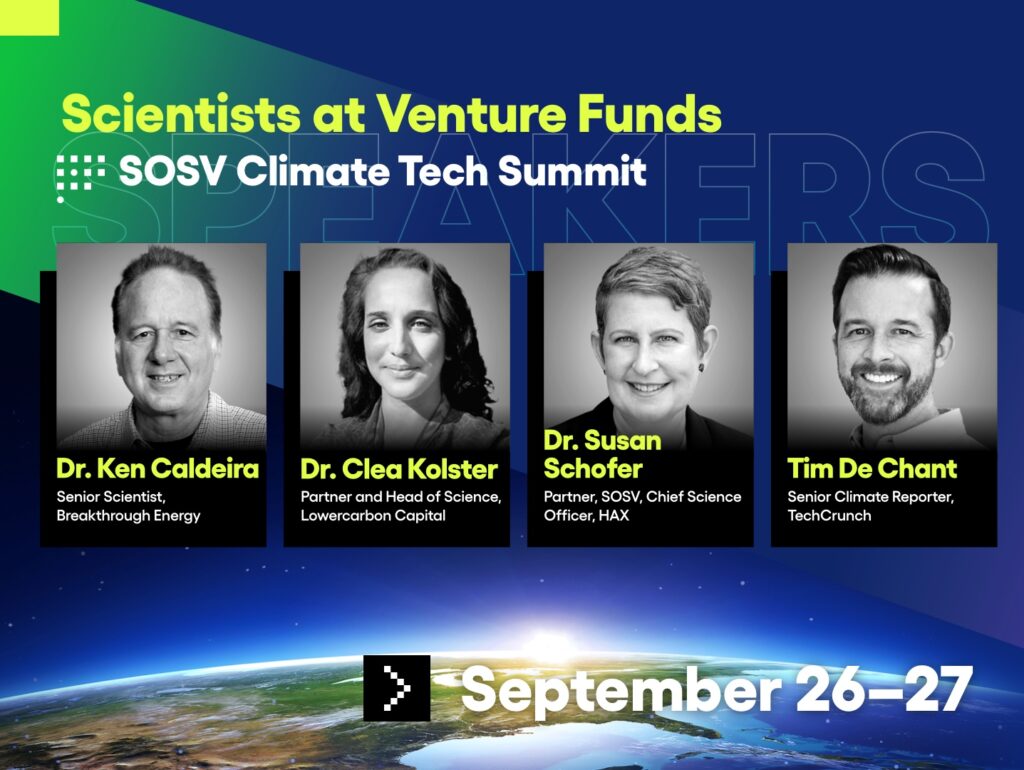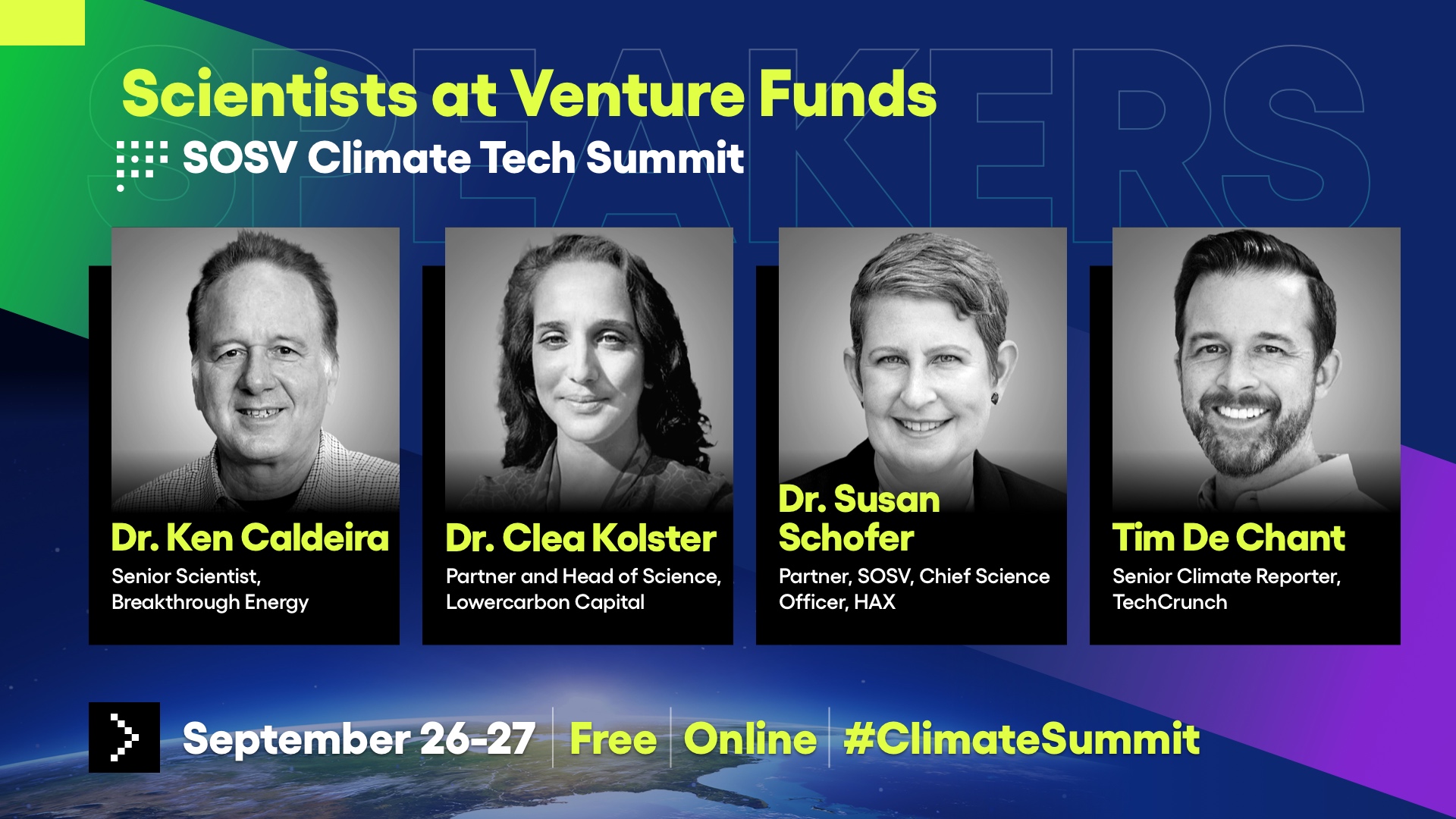
Not long ago, some notable entrepreneurs and VCs bragged about dropping out of college and trashed it as a waste of time. Now, though, advanced degrees are hot. PhDs are building climate tech unicorns, and investors are hiring PhDs to evaluate technologies that push the known boundaries of physics, biology, and chemistry. Before investing millions in a startup pioneering new science, it makes sense to diligence the science.
Three scientists who’ve taken on that distinct Science-in-VC challenge joined us at the SOSV Climate Tech Summit (Sept 26-27 / free & virtual) to discuss how they shape climate tech investments.
As you’d expect, these scientists will be quick to tell you they are not engineers. Their job is not to figure out how to build it – or even if it can be built; what they scrutinize are the scientific fundamentals. Is the plan inbounds as far as the laws of thermodynamics, for example? Some also scout universities, think tanks, and other talent hubs, while others also write the checks or get hands-on in the lab with portfolio companies.
So, should every climate VC firm have a scientist on staff? We’ll let the scientists make their case.
In 2006, Microsoft founder Bill Gates wanted to learn more about climate change, so he asked renowned atmospheric scientist Dr. Ken Caldeira to teach him (as one does). Today, Dr. Caldeira is Senior Scientist at Breakthrough Energy, the climate tech fund and policy outfit founded by Gates, with over $2B under management. Caldeira, whom Gates considers one of his “best teachers” in the field of energy, also serves at the Carnegie Institute and Stanford University, and is recognized for his research showing how human activity affects the climate. He is known to weigh in on controversial topics like geoengineering and nuclear power.
When venture investor Chris Sacca set out to “unf**k the planet” with his fund Lowercarbon Capital (see his Summit appearance here), he hired Dr. Clea Kolster, who had earned a PhD in carbon capture and storage (CCS) and energy systems modeling from Imperial College London. Today, as Partner and Head of Science at Lowercarbon, she leads technical research, development, diligence, and scientific strategy efforts. Based on the breadth of industries and scientific disciplines represented in Lowercarbon’s portfolio, this cannot be an easy job.
Also joining the panel was Dr. Susan Schofer, Chief Science Officer at HAX (SOSV’s hard tech program). A chemist by training, Dr. Schofer joined HAX from Modern Meadow, a pioneer in the biofabrication of meat and leather. At HAX, Dr. Schofer works with new startups on defining key milestones and go-to-market strategies. She is also responsible for scientific oversight and building capabilities to support portfolio companies.
Dr. Tim De Chant, Senior Climate Reporter at Techcrunch, moderated the panel.
Are climate tech VCs all going to be scientists sooner or later? Register today for the SOSV Climate Tech Summit to find out.
The Speakers
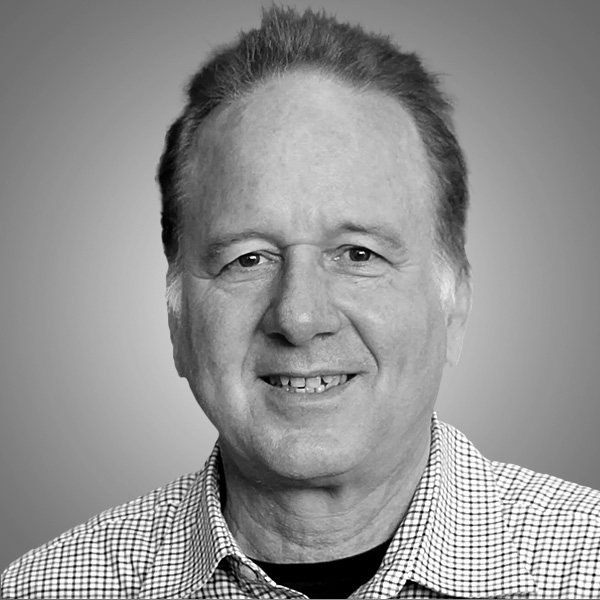
Dr. Ken Caldeira
Dr. Ken Caldeira joined Breakthrough Energy (BE) as Senior Scientist in January of 2021, but has been helping to bring information and expertise to Bill Gates since 2007. In addition to his Breakthrough Energy roles, Ken currently holds the position of Senior Staff Scientist (emeritus) in the Carnegie Institution for Science Department of Global Ecology and Professor (by courtesy) in the Stanford University Department of Earth System Sciences. Ken holds Ph.D. and M.S. degrees in Atmospheric Sciences from New York University and a B.A. degree in Philosophy from Rutgers College.
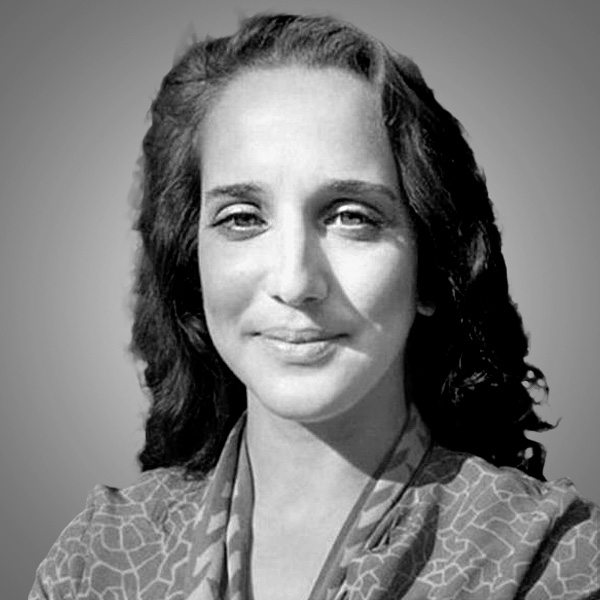
Dr. Clea Kolster
Dr. Clea Kolster is a Partner and the Head of Science at Lowercarbon Capital and leads all of the firm’s technical research, development, diligence, and scientific strategy efforts. She earned her Ph.D. in chemical engineering and energy policy at Imperial College London, focused on the techno-economics of large scale carbon capture and storage systems. Clea sits on the technical advisory board of Third Derivative, a hard science-driven climate innovation accelerator founded by the Rocky Mountain Institute. She is also a founding fellow of On Deck’s first Climate Tech program where she advises entrepreneurs and scientists on key areas of focus on climate innovation.
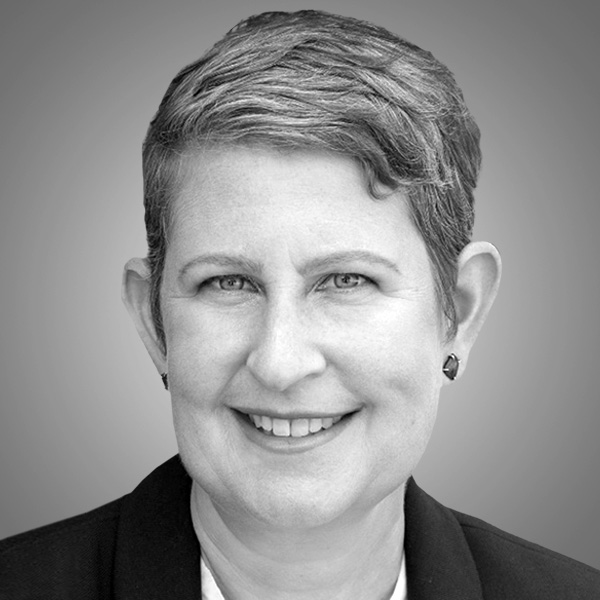
Dr. Susan Schofer
Dr. Susan Schofer is a Partner at SOSV global venture capital firm and serves as Chief Science Officer at HAX, the world’s premier venture program accelerating early stage hard tech startups. Prior to joining HAX, Susan served as SVP Business Development for Modern Meadow and a member of the executive leadership team for over 7 years, developing new sustainable materials inspired by leather without any animals. Before that, Susan spent 10 years in Silicon Valley working in roles spanning R&D, product development, product management, and business development. She holds a Ph.D. in chemistry from Caltech and an Sc.B. in chemistry from Brown.
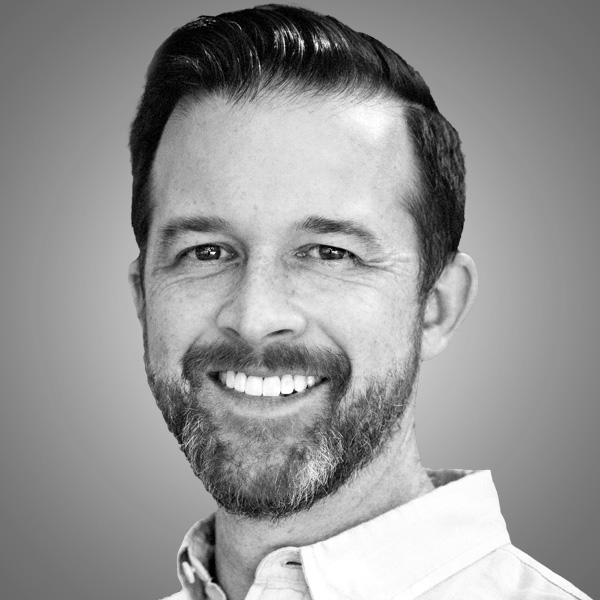
Tim De Chant
Tim De Chant is a senior climate reporter at TechCrunch and the founder of Future Proof, a publication covering climate and energy. He is also a lecturer in MIT’s Graduate Program in Science Writing and has written for Wired magazine, The Wire China, the Chicago Tribune, and NOVA Next, among others. De Chant was awarded a Knight Science Journalism Fellowship at MIT in 2018, and he received his doctorate in environmental science, policy, and management from the University of California, Berkeley, and his bachelor’s degree in environmental studies, English, and biology from St. Olaf College.
